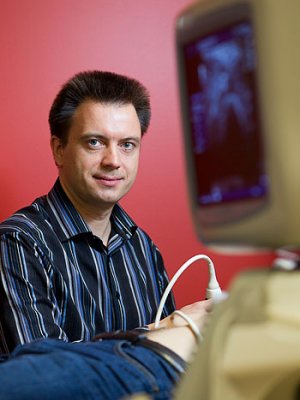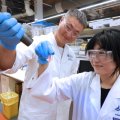
Dr Michel Coppieters’ research into the unexplained world of nerve pain aims to contribute to improved treatment and prevention of this mystifying and increasingly common condition.
Dr Coppieters has received a $90,000 UQ Foundation Research Excellence Award to continue his work on nerve pain, specifically on an aspect known as the “double crush syndrome”.
He was presented with his award at a special ceremony at Customs House on Wednesday, September 22, as part of UQ’s annual Research Week.
The UQ Foundation Research Excellence Awards have been running for 12 years and are an initiative of UQ to recognise and reward outstanding performance and leadership potential in early career researchers.
This year’s awards totaled $910,000.
Carpal tunnel syndrome (CTS) is the most common nerve disorder or neuropathy and causes pain, tingling and eventually muscle-wasting in hands.
CTS occurs in around half a million Australians and it is more prevalent in people with diabetes and arthritis. With the rise of diabetes, the incidence is likely to further increase.
Besides CTS, other neuropathies may affect nerves in the foot, neck, back or elsewhere in the arm or leg. It is a common observation that patients have more than one nerve problem.
The double crush syndrome attempts to explain how one nerve disorder can give rise to another nerve problem.
Dr Coppieters’ research aims to gain a better understanding of the physiological mechanisms that cause nerve pain, particularly the reason why patients who have experienced a neuropathy are more likely to develop a second neuropathy.
He said a lack of knowledge about the cause and effect of double crush syndrome presented a dilemma when developing treatments.
“We anticipate that we will observe a stronger inflammatory response to a nerve compression if the nervous system has previously been compressed somewhere else along its course,” he said.
“Understanding this mechanism is an important step in developing strategies to prevent the occurrence of debilitating consecutive neuropathies.”
New insights and better treatments for neuropathic pain are urgently needed as current treatments, including medication and surgery, are not providing optimal outcomes for patients.
Media: Health Sciences Faculty Communications Officer, Marlene McKendry (0401 99 6847).
.jpg)









